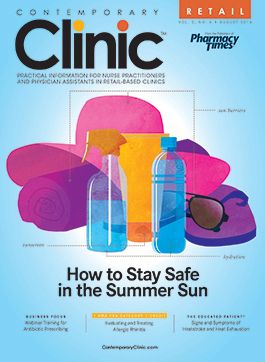Collaborative Care Carries the Retail Health Movement
This year’s Convenient Healthcare and Pharmacy Collaborative conference reminded us once again of why we do what we do.
This year’sConvenient Healthcare and Pharmacy Collaborative (CHPC)conference reminded us once again of why we do what we do. In the past few months, we have seen turmoil and division across our country. Beyond protest, we’ve seen acts of violence that have stunned the nation and called us to question the roles we play in our communities. This is particularly true for Orlando, where we’ve proudly organized the CHPC conference alongside our partners atPharmacy Times.
We, and so many others tirelessly working within the health care industry, reject the notion that acts of violence and division are any norm for our society. All pharmacists, nurse practitioners (NPs), physician assistants (PAs), and other providers in retail health have dedicated their lives to helping and healing, even in the midst of the toughest circumstances. That’s why this year’s CHPC conference reignited my hope for the future of the retail health movement. Consumer-driven, accessible, affordable, quality care is needed now more than ever before.
In June, I reflected on the growth of the retail health movement, from a handful of clinics to now more than 2100 clinics across 43 states and the District of Columbia. Although there were efforts to stymie our progress in our earlier years, we are now finding more collaboration and opportunity for partnership than ever before. CHPC is designed to live out that belief by bringing PAs, NPs, and pharmacists together under one roof. This year, we heard from representatives from each of those categories presenting to a larger crowd of attendees than we’ve ever had before.
In addition, we added an Executive Track pre-conference day, where we had the opportunity to hear industry leaders discuss the trends, major hurdles in retail management, and the global movement we’ve become. Leaders from all of the major retail clinics provided their insight and perspective on our movement. On the first day of the conference, we transitioned from the overarching trends to tangible practice and insight into how we can better provide care. The final day of the conference featured a dual track for NPs/PAs and pharmacists to get practical knowledge that they could take back to their practice settings.
The attendance was larger, more diverse, and appeared to be very dedicated to the retail health movement, which emboldened my belief that our industry will continue to flourish and disrupt. CHPC proves that the collaborations that exist among the NPs, PAs, pharmacists, and physicians who work and support the retail health industry are more powerful than previously believed.
As we begin planning for next year’s CHPC, we want to hear ideas from those who attended our conference and others who were not able to. We already have some exciting plans in store, including an extra day and more pharmacology credits. We look forward to seeing you next year!
As always, thank you for all that you do across the county. Your commitment to consumer-driven care is an inspiration to all.

